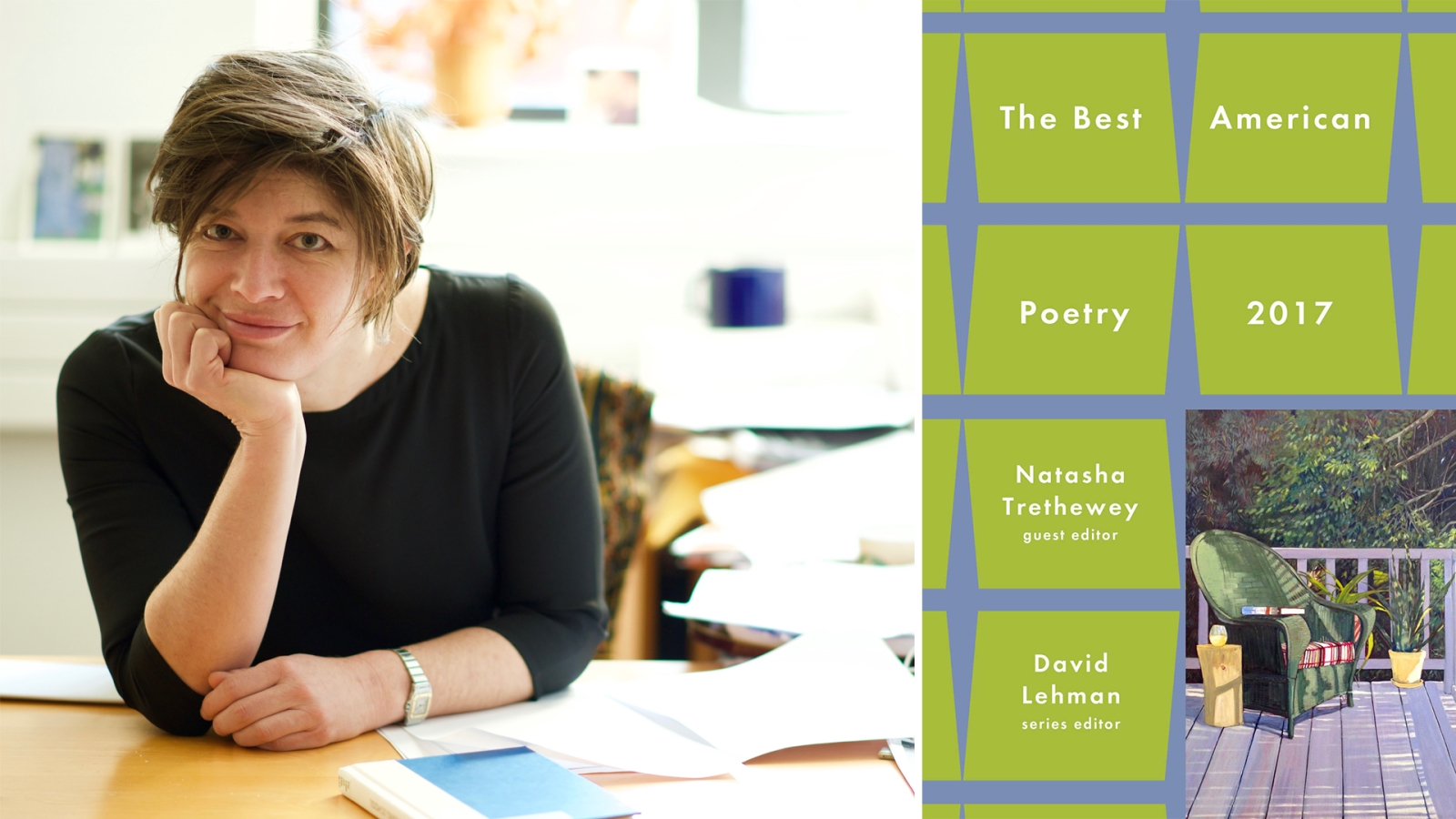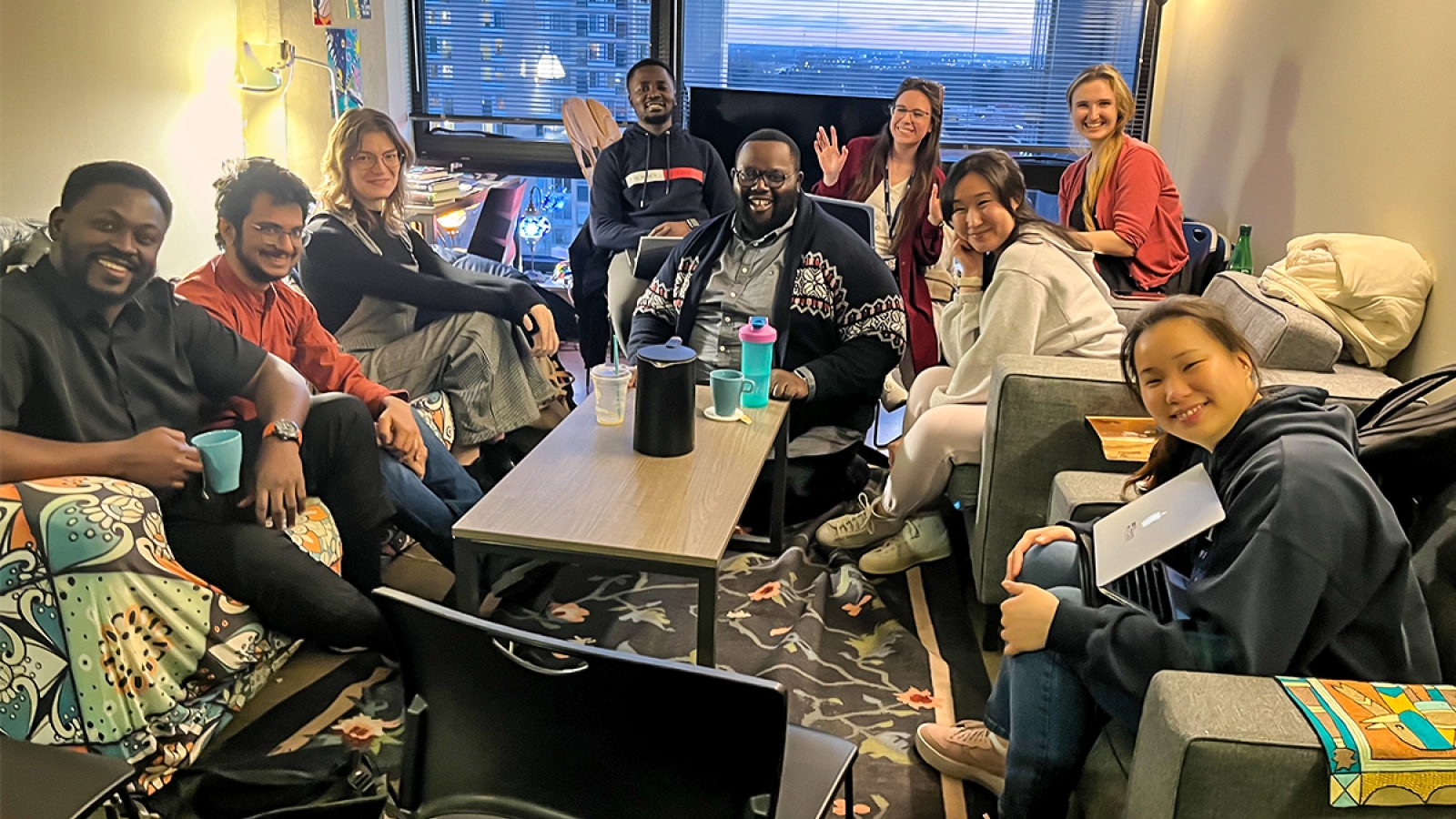Although she’ll tell you she was born a poet, Taije Silverman thought of poetry as a calling she needed to make time for before she was forced to begin her “real career.” Now she teaches classes on poetry, creative nonfiction, and translation as a lecturer in the Department of English, and has time for her own writing as well. Her poem “Where to Put It” was included in The Best American Poetry 2017, marking the second year in a row she had a poem in the collection. Silverman has also received the Pushcart Prize and a Fulbright Award, and is on the editorial board of Alice James Books.
We talked to her about how she got here, what it’s like to write and teach poetry in the 21st century, and what advice she’d give young poets.
How did you become a poet?
I think I was born a poet. My mother told me I would go to sleep singing my sorrows. So whatever sad things would happen to my three-year-old self that day, I would sing a song about them to my mother before going to sleep. Then at whatever age people start receiving books as birthday gifts, I was getting books of poetry. And those books were my secret company while I was getting Ds in Chemistry. They were my language.
After college, I went into book publishing, which certainly won’t tell you that you can have a career as a poet. After a few years, the publishing company where I worked was bought by a larger one, and I was moved from literary nonfiction to business books in the same week that a longtime boyfriend broke up with me. I felt like a helium balloon whose string had been let out of somebody’s hand, and I just floated out of New York and back to Virginia where my parents lived.
I audited a poetry class with Greg Orr at the University of Virginia, and then went to Europe and studied with Mark Doty [National Book Award winner and currently a professor at Rutgers University]. I decided to stay in Europe and just keep writing while applying to graduate schools. And really, I wasn’t applying to graduate schools out of some belief that I could have a career as a poet. I was applying because I thought, “I don’t want to think about having a career. I want to think about however much time I can steal from my life that will allow me to do this the way I’m doing it now.”
I started in the University of Houston’s MFA program because Mark Doty was teaching there, but when my mother got sick, I transferred to the University of Maryland. After graduate school, I got a fellowship at Emory University and was around some extraordinary poets, Natasha Trethewey and Kevin Young, and I finished my first book, Houses Are Fields. The academics down the hall from Creative Writing were doing mock interviews with graduate students, and they told me I should practice for job interviews as well. And so I did, and applied for various jobs. And got one at a little college in the suburbs here, and then came to Penn from there.
What is it like to teach poetry writing?
One of the most obvious things to teach is form: the shape of the thing on the page, and how silences between words and between lines form a fundamental aspect of the poem. In teaching form, I want to show silence as a part of language. I think that’s a more overt truth in poetry than it is in other forms of writing.
Poets, in particular, want to put their finger on a pulse. And it’s the larger pulse of culture and humanity, and how that humanity belongs to and challenges the smaller “I.” In class yesterday we talked about why the unexpected specifics of an image can convey an emotion more effectively than simply stating that emotion, and I used the example of someone’s hairstyle at a recent protest for DACA (Deferred Action for Child Arrival), to show how observed details can spur a poem into unplanned directions and form the bricks we walk on in our daily lives. I think teaching poetry is particularly connected to things happening outside the classroom. That might be more of a hope than a belief.
What inspires you?
I’m inspired by all sorts of things. They choose me more than I choose them. I gravitate toward opportunities where I can explore the playfulness and loneliness that coexist inside irony. Like my husband playing Scrabble on his phone in bed after we’ve watched an episode of “The Americans.” I don’t have much of an emotional filter, and my relationship with information just isn’t hierarchical, so I’m always looking at how whatever random thing I’ve seen or heard connects to my life.
I’ve just published a poem in the Sewanee Review about Solon, the Greek philosopher who founded Athens. Solon came up with some of the language and ways in which we think about civilization today. The poem came about as I was reading about Solon in bed, discovering these intense private details about him that we’ve somehow preserved alongside his blueprint for a city, and trying to process that reading by thinking of it in relation to my husband playing Scrabble.
You teach translation. How do you think that informs your poetry and vice-versa?
I’m just finishing a six-year translation project on Giovanni Pascoli, an Italian poet who died in the early 20th century. I’ve been working with three editors, two of whom are also poets, and they’ve gone line by line through every poem in the manuscript, cutting so much of the language and taking me to task for every flowery turn I make. Their precision and care have been extraordinarily instructive. And what I’ve learned from them about translation also carries over to my own work—I think I’m more prone now to want to say something once instead of three times, and with the lightest touch possible.
Translation has also given me a much broader claim on territory than I had felt previously, especially since I’ve begun teaching it. These extraordinary students enroll in the class, and they help introduce the most beloved poets from their various countries—Korea, Bulgaria, Finland, Pakistan, Lebanon, China, Israel, Chile, and so on—to the rest of us. So through their expertise and more importantly their personal connection, we all start to know not just the poet, but also the poet’s culture and history and love story. And you see how every translator has this right to the poem, this right to claim it with their own language even as it challenges their language.
This sense of access feels true not just for what the poets wrote, but also for their stories and environments. That what happened in the 1930s in Saint Petersburg can belong to me in a way that I hadn’t necessarily imagined or presumed before I began to teach translation. That a Korean poet who died in a Japanese prison can speak to the Greek philosopher Solon and to my husband playing Scrabble in bed. The sense that these tiny fragments of Philadelphia and New York where I seem to exist can belong to that exchange, and be in a kind of continuum with it, has made my work larger.
What advice would you give a young poet?
I would want to tell them to engage in the world, and to find stories that matter. Find ways in which their lives can engage with lives beyond theirs. That we’re directly impacted by lives beyond ours in ways we aren’t often taught, and we can directly impact those lives in ways that they don’t—we don’t—give ourselves credit for.
I remember being overwhelmed by how talented those around me seemed when I was in graduate school, and saying to my mom, “You don’t understand, Mom, I need to become a better poet.” And she answered back so clearly: “No, Taije, you need to become a better person.” That’s another thing that seems to me particular to teaching poetry. The person who writes it matters. You’ll get a sense of their being, or of how largely they’re thinking. Of how largely they’re wanting, through what they write. The imagination is just this immense, ethical tool, and it wants a global influence.
I was also surprised to learn, as I got older, how much more persistence matters than talent. That’s always a misunderstanding of the young, that you’re not good enough. It’s really not about being good enough. It’s about getting up and getting up and getting up. Not being refused. But I don’t know that that’s the first thing I would tell a young poet.
How would you like to see poetry be shared?
The Favorite Poem Project brought people from around the country together for readings. Not just poets and students of poetry, but everyone. So the woman who works at the bagel café in Williams, and the guy who empties the trash at night, and the dean of such-and-such, and the middle school student from West Philly, and the taxi driver, they would all be invited onto an auditorium stage together to recite their favorite poem. Almost everyone has a favorite poem. Secretly.
And there’s something unassailable about sharing that love, which is so personal, and usually has to do with some absolutely treasured memory, which is only yours, and un-corruptible. And more valuable than money, and in some ways even than safety. Sharing that poem with a group of people in your society and understanding that they have the same love, that they also value it over money and safety, feels to me quite delightful. Maybe useful.
I would like to see those kinds of events take place more naturally in our world, beyond the auditoriums of the Favorite Poem Project. There are cultures where poetry’s a more commonly spoken language or shared love. Ours is not one. We tend to stop talking about Robert Frost or Gwendolyn Brooks or Langston Hughes once we’ve finished reading them in high school, unless we go on to become poets. And that seems to me unnecessarily impoverished. I miss my friend who decided to work at Lehman Brothers, and yet still had at least a hundred W. H. Auden poems memorized, and would just randomly recite them at parties with a bunch of stockbrokers.
People tend to think of poetry as refined.
I think that notion of refinement excludes. I wish the craft of it were more emphasized. That it’s a thing that you make. A thing you make in the way that a carpenter makes a table or a gardener makes a row of delphiniums. And that hands are incredibly useful and common, yet they can be precise and refined—just not refined in the sense that we don’t all have those hands.
Photo by Peter Decherney



